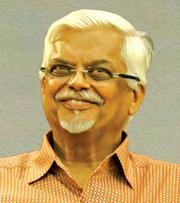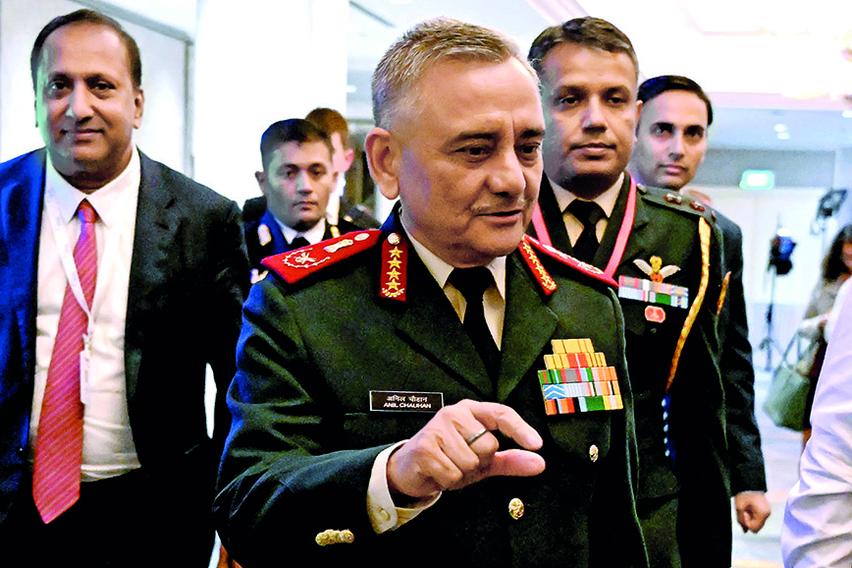
SANJAYA BARU
Given the underwhelming cacophony that surrounded the reporting and commentary on the India-Pakistan military conflict of May 2025, the most sober and honest remarks, in fact, came from India’s Chief of Defence Staff (CDS), General Anil Chauhan. Speaking to a journalist on the sidelines of the Shangri-La Dialogue, organized annually in Singapore by the International Institute for Strategic Studies (UK), General Chauhan gave credit to the rationality of men in uniform. “It is my personal view,” he said, “that the most rational people are people in uniform when conflict takes place. That is because they understand the conflict can swing either way. They understand the consequences of this kind of conflict.”
General Chauhan went on to make another remark that stands apart from all the jingoistic nonsense one hears from both the many television channels and politicians of a certain hue. “In every step which happened during Operation Sindoor,” observed General Chauhan, “I found both sides displaying a lot of rationality in their thoughts as well as actions.”
To be able to act rationally in the discharge of an essentially irrational act — to kill — is the professional code of the soldier. The Indian media and middle class routinely refer to soldiers as ‘bravehearts’. They eulogize their valour and honour their supreme sacrifice for the country. This is understandable. Yet, it should always be remembered that a soldier is a professional, like any other professional. A rational actor.
There are many professions in which people risk their lives for others. Firefighting, for instance. No soldier ever wishes to actually die in a war. His or her aim is to make the adversary die, if at all necessary. It was General George Patton, a World War II hero, who best articulated this principle that must guide a soldier in war. General Patton told his soldiers, “Let me tell you, no dumb bastard ever won a war by dying for his country. He won it by letting the enemy dumb bastard die for his country.”
Soldiers are the most peace-loving persons you would normally come across because no soldier wishes to die if such an end can be avoided. Television anchors, on the other hand, seem to be the most zealous warmongers around. Nothing was more embarrassing during the recent India-Pakistan conflict than the sight of television anchors and other characters hanging around in TV studios engaging in mock battle, flying in cardboard helicopters and playing war games.
There are TV channels that have made warmongering and reporting on conflicts around the world their staple. It is horrifying to sit in Delhi airport and see visuals on a TV screen of airplanes being bombed out before boarding a flight. This TV channel has acquired exclusive rights to present news on the airport’s TV screens. What we see more often than not are reports of impending nuclear attacks in Ukraine and other desperate places around the world. This is now middle-class entertainment.
We have often seen cartoonists depict the bravery of the patriot who publicly supports war against the enemy but hides under the bed when an army officer visits him at home to recruit him for the cause. Most middle-class bravery is confined to the living room. Television caters to this vicarious desire of a comfort-seeking middle class. No soldier on the battlefield would have much respect for such journalism.
In the highest ranks of the Indian armed forces the greatest respect is reserved for diplomacy and political leadership that can ensure peace without requiring soldiers to die for it. Yet, when called upon to do so, no soldier holds back. We readily celebrate the latter and do not pay much attention to the former,
that is, the diplomacy and the politics that avoid death.
A political leader who claims he has achieved something by sending soldiers to death is less of a leader than one who seeks to achieve the same result without loss of life. One of the great tragedies of our times is that those who speak for peace and oppose war are marginalized, often penalized and punished, while those who agitate for war and seek the death of others are eulogized as patriots.
We see this on university campuses around the world where idealistic students and teachers who speak for peace and oppose war become the target of so-called nationalists. The last time an entire generation of young people spoke in one voice, if in many languages, for peace was during the Vietnam war. That was half a century ago. Voices for peace, anti-war voices were muted when the United States pounded Iraq, bombed Libya, destroyed Afghanistan.
Benjamin Netanyahu’s ignominious genocide in Palestine has finally made millions around the world once again speak for peace and against war. That gives some hope. For the same reason the global military industrial complex that thrives on war is out to silence the critics of Netanyahu’s genocide in Gaza.
It is regrettable that in both India and Pakistan voices for peace are getting muted even as support for military action is growing. In Pakistan the military has a stake in war since its very existence and all the power and privileges that go with it are dependent upon the continuation of hostile relations with India.
The mindset of the Indian armed forces is, however, completely different, as reflected in the wisdom of the Chief of Defence Staff. The Indian armed forces are trained to win in war but not to seek conflict. They look to diplomatic and political leadership to address India’s external challenges. However, when called upon to do their job, they do so readily and professionally.
Sanjaya Baru is a writer and Distinguished Fellow at the United Service Institution of India
Comments
Currently there are no Comments. Be first to write a comment!




